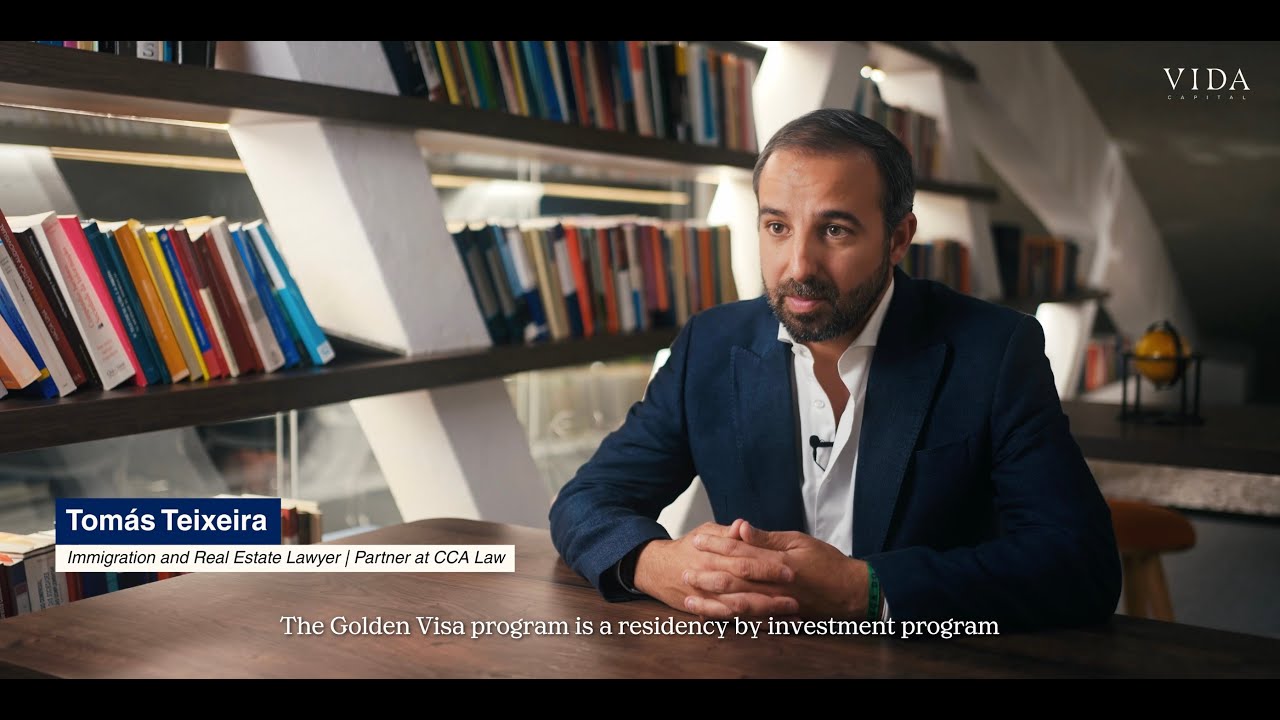Retire in Europe with Ease Through the Portugal Golden Visa
Europe has long been a dream retirement destination thanks to its rich history, beautiful landscapes, and high standard of living. From charming coastal towns to bustling cities rich in culture and healthcare services, the continent offers retirees an exceptional quality of life. With public transportation, accessible healthcare, and world-renowned cuisine, Europe appeals to those looking for both comfort and adventure in their golden years. However, retiring in Europe isn’t always straightforward—visa and residency requirements can be complex. That’s why Portugal’s Golden Visa program stands out. It allows non-EU citizens to gain residency (and eventually citizenship) with relatively low barriers, making Europe far more accessible than it might seem at first glance. For retirees, it’s one of the most flexible and practical pathways to settling in Europe without needing to work or study.

What Is the Portugal Golden Visa?
Launched in 2012, the Portugal Golden Visa is a residency-by-investment program designed to attract foreign capital and boost the Portuguese economy. It allows non-EU/EEA/Swiss citizens to obtain a renewable residency permit in exchange for qualifying investments—most commonly in real estate, funds, or cultural preservation. With this visa, retirees can legally reside in Portugal and travel visa-free within the Schengen Area. The program is popular due to its flexibility: applicants don’t need to move to Portugal full-time to maintain their residency. Just a minimum stay of 7 days per year is required in the first year, and 14 days every two years thereafter. This makes it ideal for retirees who may want to split their time between countries. After five years, you can apply for permanent residency or citizenship, making Portugal a long-term option for retirement in Europe.
Key Benefits for Retirees
Portugal’s Golden Visa offers retirees a long list of advantages beyond just residency. First and foremost is access to the Portuguese healthcare system, which is ranked among the best in the world. Retirees can either use public healthcare services or opt for private insurance, both of which are more affordable than in many Western countries. The visa also allows for family reunification, so you can bring your spouse and dependent children with you. Another major benefit is the tax-friendly environment. Portugal offers the Non-Habitual Resident (NHR) tax regime, which can provide significant tax breaks on pensions, foreign income, and more for up to ten years. Combine that with a lower cost of living, mild Mediterranean climate, and safety, and it’s easy to see why Portugal ranks consistently among the top retirement destinations in the world. Plus, the country boasts an English-speaking expat community, especially in Lisbon, the Algarve, and Porto, making the transition smoother. See Also
Investment Options Under the Golden Visa
To qualify for the Golden Visa, retirees must make a qualifying investment. As of 2024, the most popular option is investing €500,000 or more in eligible investment funds or €250,000 in cultural preservation projects. Previously, real estate investment was a common route, but changes in the law have restricted property purchases in Lisbon, Porto, and coastal hotspots to reduce market inflation. Funds have become the go-to option for many retirees. These funds are professionally managed, often diversified, and can offer attractive returns. They focus on sectors like tech, healthcare, and energy, allowing applicants to contribute to the country’s economic development without needing hands-on involvement. Another appealing route is the donation-based option, which involves contributing to scientific research or cultural preservation. It’s less lucrative financially, but it simplifies the path for those who don’t want to manage investments during retirement.
Step-by-Step Application Process
The process to apply for the Portugal Golden Visa involves several clear steps, but professional assistance is highly recommended to ensure accuracy and compliance. First, you’ll need to choose your investment route, open a Portuguese bank account, and obtain a tax identification number (NIF). From there, you’ll make the qualifying investment and gather necessary documentation, including proof of income, a clean criminal record, and valid passports. Next, you’ll submit your application online via Portugal’s immigration platform (SEF), followed by a biometrics appointment in Portugal. Once approved, your residency card is issued and is valid for two years, renewable every two years. Throughout this period, you must maintain the investment and meet the minimum stay requirements. After five years, you may apply for permanent residency or Portuguese citizenship, provided you pass a basic Portuguese language test (A2 level). The entire process can take several months, so it’s wise to plan ahead and consult legal or financial advisors.
Cost of Living and Lifestyle in Portugal
Portugal offers an affordable lifestyle compared to many Western countries. Monthly expenses for a retired couple can range from €1,800 to €2,500, depending on location and lifestyle. Smaller cities like Évora, Braga, or Coimbra are much cheaper than Lisbon or Cascais. Rent, groceries, and utilities are all lower than in the U.S., Canada, or the U.K., while still maintaining high living standards. The lifestyle is relaxed and centered around community, food, and the outdoors. The country has over 300 days of sunshine annually, especially in the southern Algarve region, which is known for its beaches and golf resorts. Portuguese cuisine—rich in seafood, olive oil, and pastries—is both delicious and budget-friendly. Public transportation is reliable and inexpensive, and for those who drive, fuel and car maintenance are more affordable than many other European countries. Retirees often highlight the safety, friendliness, and laid-back culture as some of Portugal’s best qualities.
Potential Challenges and Considerations
While the Portugal Golden Visa offers an attractive pathway to European residency, there are a few potential drawbacks to consider. First is the language barrier—while many Portuguese people speak English, especially in urban areas, learning the basics of the language is important for integration and eventually qualifying for citizenship. The A2-level Portuguese test isn’t overly difficult, but it does require consistent study .Also, the bureaucracy in Portugal can be slow and unpredictable. Delays in appointments, paperwork, or application approvals are not uncommon. Patience and the help of a legal advisor can go a long way. Additionally, although healthcare is excellent, some expats opt for private insurance to avoid long wait times in the public system. Lastly, while Portugal is one of Europe’s most affordable countries, it’s not the cheapest—retirees on very limited budgets may want to explore less developed EU countries for lower costs.
Conclusion: Start Your European Retirement Dream in Portugal
Portugal's Golden Visa offers retirees a unique blend of accessibility, flexibility, and long-term benefits. Whether you’re drawn by the warm climate, rich history, or laid-back lifestyle, Portugal makes it remarkably easy to settle into a peaceful and fulfilling retirement. With minimal stay requirements, strong healthcare, and a clear path to citizenship, this visa is one of the most retirement-friendly options in Europe. But like any major life decision, success lies in the preparation. Research your investment route carefully, consult experts, and make sure the lifestyle aligns with your expectations. If done right, the Portugal Golden Visa isn’t just a ticket to residency—it’s a doorway to a new chapter of life in one of Europe’s most welcoming countries. Retire with confidence, and let Portugal be your next great adventure.

